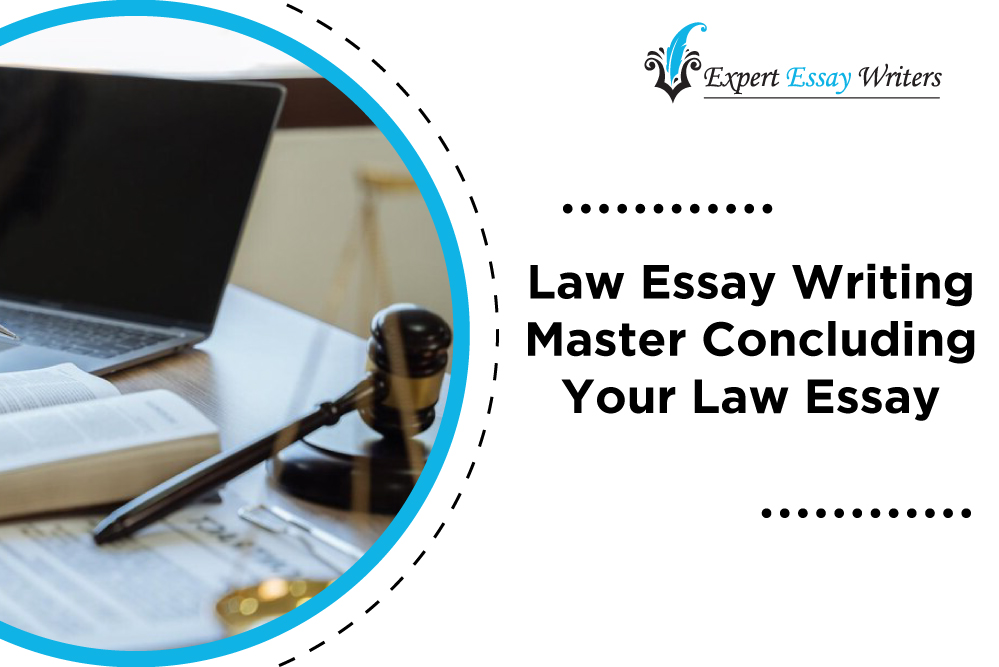Think about your favourite book or movie. Do you remember how it ended? Chances are that you do. This is because, as humans, we tend to remember the start or the end of things more clearly than we do in the middle. The same is true when it comes to writing a conclusion in law essay writing.
But What is a Conclusion?
To put it simply, a conclusion is the end paragraph of your essay. So, as a concluding paragraph, you are supposed to wind down your essay, summarize it, and end the thing. But the thing is that a concluding paragraph is much more than that.
You can think of it as a sales pitch. In the conclusion of your essay, you are trying to sell your ideas and arguments to the reader. You have explained your reasoning earlier on; the conclusion will act as the final push that may convince the reader to think about your argument.
That is why even though it comprises about 15% of the entire essay, a conclusion may be the most crucial part of it. Following is what you should add to the conclusion of your essay to leave a lasting impression on the reader.
But first, let’s have a look at the two different types of questions and conclusions in law dissertation writing.
Essay Style Question:
In this type of question, you need to give your opinion on a specific piece of law. These questions are usually very straightforward.
In its conclusion, you must restate your central theme. This central theme must be stated throughout your essay, and you must try to prove it correctly. In the conclusion, you will summarize how this theme is proven right using the evidence you have given previously.
Problem Style Question:
In this type of question, you are given a scenario describing a specific set of events. The conclusion is fairly simple.
In the first line, you should state which area of law you deal with in the above scenarios and then also mention what solutions you provided for each scenario.
What is Included in a Good Conclusion?
Now, let’s look at the elements that make up a good conclusion!
Summarize & Restate – You may have been told that you must summarize the main points of your essay and restate your thesis statement after your essay. Even if you are paraphrasing, this is not a good idea. Doing so will just make the essay seem stagnant and repetitive.
What you can do is briefly mention these main points and the thesis statement and then connect it to the evidence you have given in the essay. This will reinforce your argument and even make sense to the reader as to why you added the evidence in your essay in the first place.
You can even address the counterarguments about the summary and emphasize why your argument is the right one.
Address the Legal Implications – Since this is law assignment writing,you must address the legal implications that might come out of the topic. Your analysis can have major impacts on current or future laws, so it is good to highlight those in your conclusion.
This not only shows a greater understanding of the topic at hand but also adds depth to the overall essay.
Make the Ending Intriguing – The ending of the conclusion should leave a lasting impression on the reader. You can do this by having an impactful ending statement. In this, you can include how your argument is viable, a call to action or a thought-provoking question.
In most cases, the essay ends with a thought-provoking question. You can do this. Break the rules a bit and speculate. Throughout the essay, you probably could not speculate anything that couldn’t be backed up by facts, but in the conclusion, you can slightly bend the rule and leave the reader with a question.
You can also just end with a resolution. Tell the readers what to expect later. What are the future implications of your argument? You can even demonstrate some forward thinking by suggesting for future research.
Don’t Give New Information – One of the most important things to remember is that you should not give any new information in the concluding paragraph. Introducing new arguments, concepts, or evidence can confuse your audience and lessen the impact of your meticulously crafted conclusion.
You should focus on summarizing and incorporating the ideas and how they affect the evidence you’ve provided. It can also be helpful to somehow match the conclusion with the introduction. This is not necessary but advisable.
Following the tips above, you can now write a great conclusion for your law assignment. However, if you are still having trouble, you can ask for help from one of the best law essay writing service.

